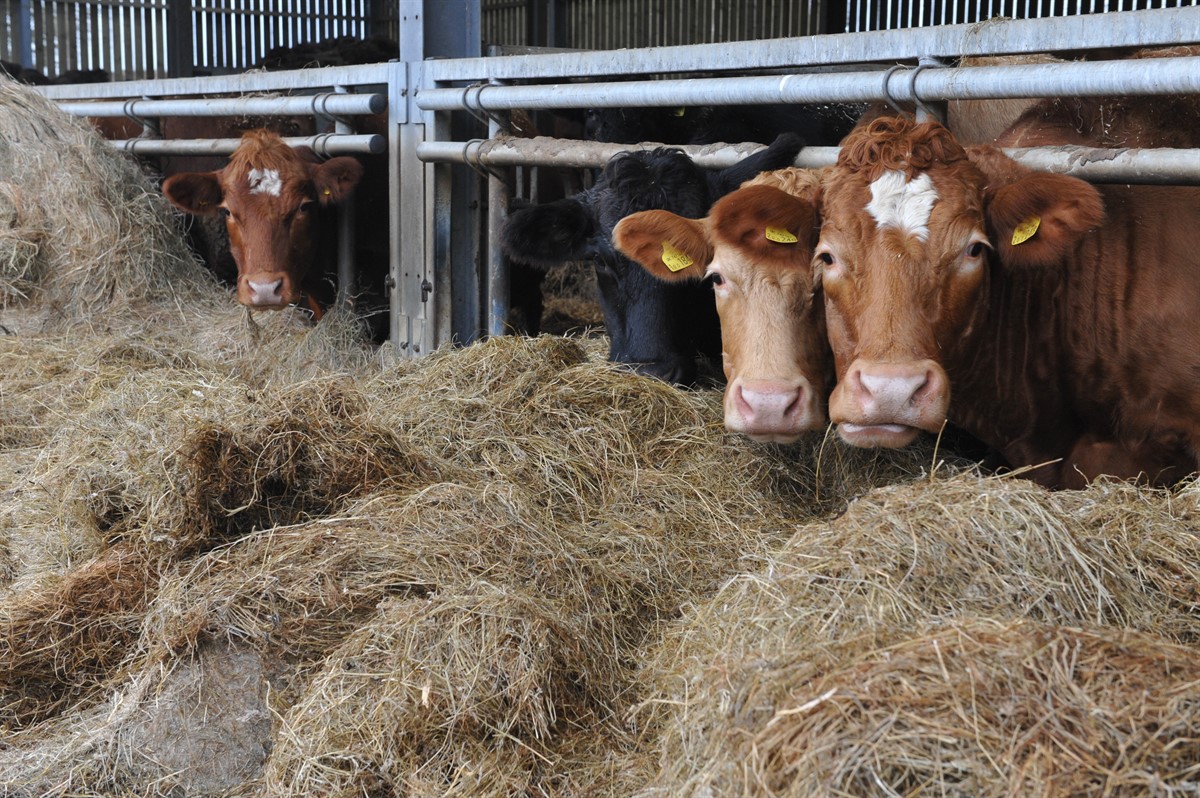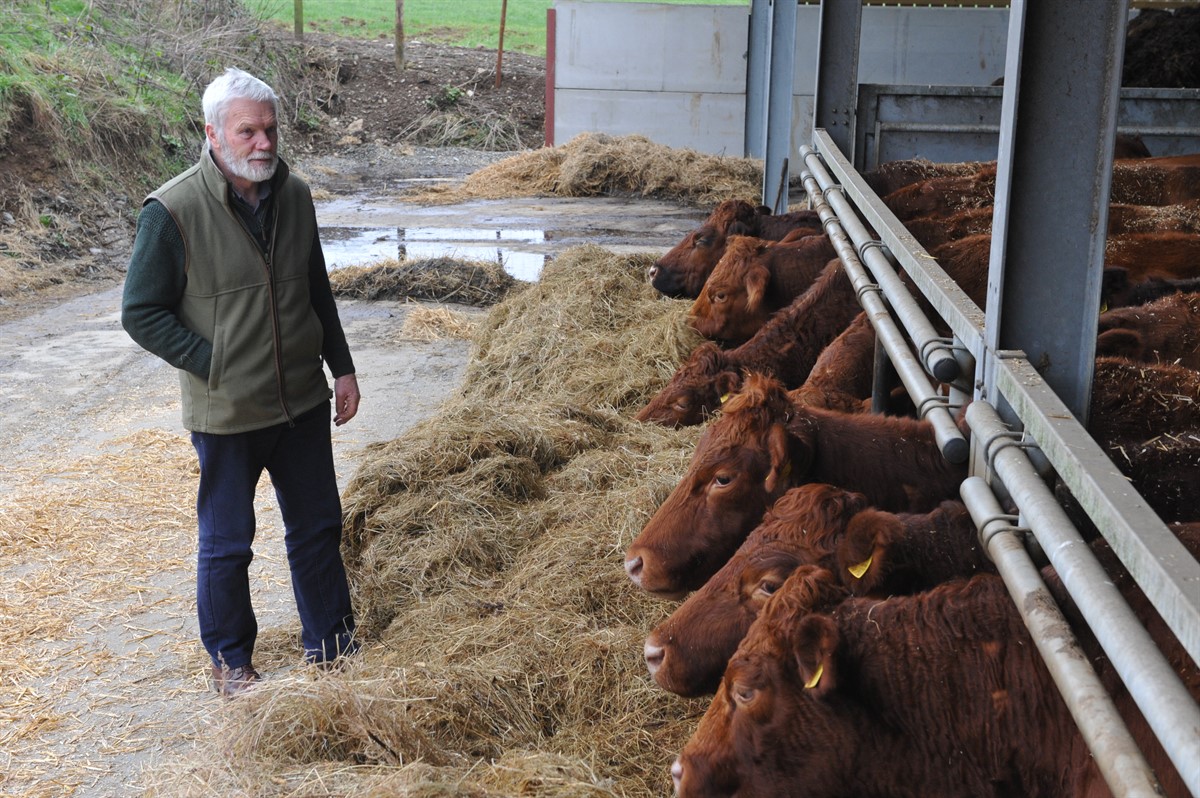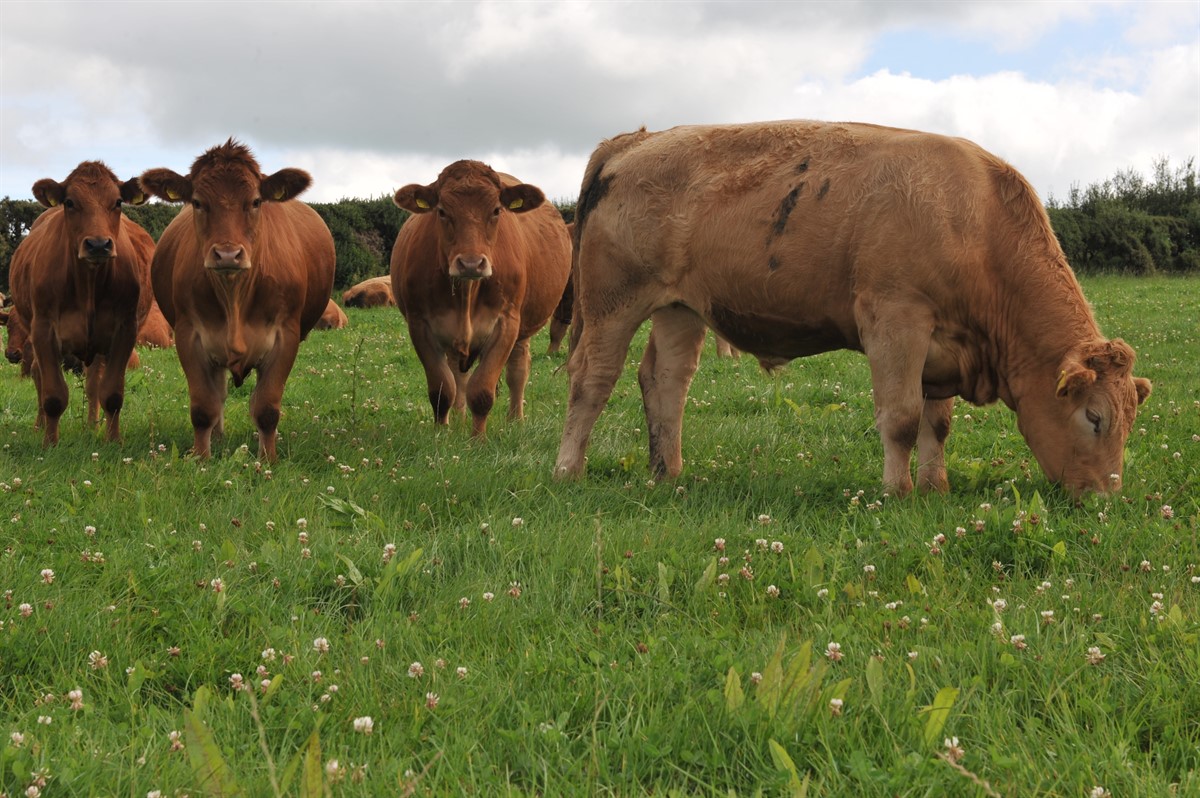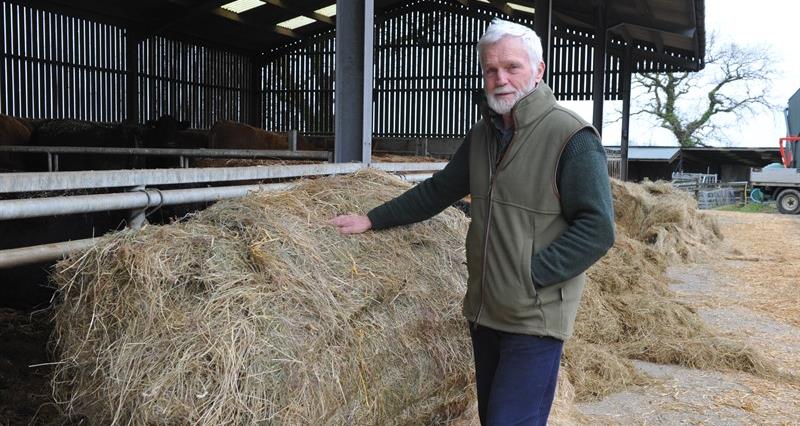The short-term fix to slowing carbon emissions could lie right beneath Tom Cowcher’s feet. He is standing in a field of permanent pasture at Penrhiw, the farm he bought on the outskirts of Llandysul as a new entrant to farming 43-years-ago.
He points to the large woodland on the farm and then stamps his feet on the ground to accentuate his point. “This pasture can sequester more than twice as much carbon as mixed woodland.
"Trees aren't going to do it"
“We have an obsession with planting trees to solve global warming, but trees aren’t going to do it, we need to be focussing more on the soil and getting the best from that with systems like ours.”
That system is an organic one and run according to regenerative farming principles with minimum soil disturbance and pastoral grazing.
“If we don’t look after our soils, it is all going to go pear-shaped, it needs to be an important mission for farmers going forward,” Tom suggests.

Farming is in his blood
He wasn’t born into farming - his father was a chartered accountant but with a client base of mostly farming businesses. Tom was just five when he declared that he wanted to be a farmer; he reckons he did that because farming is in his blood.
By that he means that both his grandfathers were involved in agriculture - his maternal grandfather was Chairman of the War Agricultural Executive Committee in Cheltenham District and his paternal grandfather served as NFU County Secretary for Gloucestershire from 1915-1944.
Tom studied agriculture at Wye College and was set to work in agricultural development in Indonesian New Guinea but while he was awaiting his visa application to be processed, he got a job on a farm in Pembrokeshire.
Despite what he recalls as a somewhat fractious relationship with the farmer he stayed for a year, forgot about his overseas ambitions and honed his farming skills.

In 1978 he had the opportunity to buy Penrhiw, at that time a 60-acre holding with a homestead. Tom stocked the farm with 80 in-lamb Welsh ewes and planted cereal crops.
“I hadn’t ever ploughed a field, so it was a steep learning curve, but the neighbours were very helpful,” he says.
Crazy about sheep
He had come to Penrhiw as a single man but was to meet his Swedish wife, Eva, when she visited the UK as an agricultural student.
“She was crazy about sheep and always tells me that she came here for the sheep, not for me!” he laughs.
The couple now farm with two of their children, Philip and Nia, while their eldest son, Daniel, works at Blaencamel Farm in the Aeron Valley and also helps to manage the woodland at Penrhiw.
Succession
Tom has been happy to hand the reins over to the next generation.
“I have been to farms where it is the grandfather that is still calling the shots and that is tragic, that is why change comes so slowly in farming.”
With purchased and rented land, the business has grown to 500 acres and is stocked with 70 Stabiliser cows and 950 Highlander ewes and ewe lambs.
The cattle were initially set stocked but have been rotationally grazed for several years, to improve grassland performance.
The farm has been organic since 2001 and it was at this point that the beef enterprise was established, funded by the organic conversion payment.
“We felt that mixed stocking was better in an organic system, and I still think that is the case,” says Tom.
Policies to support regenerative farming
He believes future government support policies should support regenerative farming in a similar way to how he was helped to convert to organic.
“There may be a price premium for their products but only once they get there so it seems sensible to help farmers during the transition, with advice and payments, if this is the direction the government wants agriculture to move towards.”
Reducing inputs has got to be a positive approach going forward, he adds. “There is a whole industry with a vested interest in persuading farmers of the benefits of all sorts of inputs. Take fertiliser as an example - farmers have come up against a brick wall on price but there will be businesses out there that are still going to sell it by making tweaks and convincing farmers they need it, but we can produce quality food without those inputs.”
Welsh Blacks to Stabilisers
Penrhiw was first stocked with Welsh Blacks, but Stabilisers are now the breed of choice. “We are very pleased with them, they are nice natured and seem to do well on our system,” Tom explains.
Bovine TB first cast its shadow over the herd three years ago, with the first disease breakdown, and it has been in a cycle of breakdowns ever since.
“Thankfully we have only lost eight cattle, but it means we can no longer sell breeding stock, and even the decisions we make around when to finish cattle are often dictated by TB so we don’t maximise the value of them,” says Tom.

Bovine TB
He sits on the South West Wales Regional TB Eradication Board and through that work and his role as Vice County Chairman of NFU Cymru in Ceredigion, is all too aware of the devastating consequences TB has on herds in Wales.
With 100 acres of woodland on the farm, he is in no doubt the wildlife is the source of infection in his herd and, like many farmers in his situation, feels powerless because of what he says is Welsh Government’s failure to take action to tackle the disease reservoir in wildlife.
“Swift and successful disease eradication is essential to save our rural communities, the health and wellbeing of our livestock and our farmers is being seriously compromised,” he insists.
“TB is a scourge upon our rural communities, it must be eradicated so we can focus on the other important challenges we all face.”
Renewable energy generation
While farming is the main enterprise at Penrhiw, renewable energy provides another important source of income with electricity produced by wind turbines, solar panels and biomass and exported to the grid.
“We had to borrow money to set it up, but we got into renewables at a time when there was a good Feed in Tariff,” says Tom.
Although he is now less involved in the farm, he and Eva are fully occupied with their holiday accommodation business.
They diversified 30-years-ago, converting buildings to a bunkhouse and cottages, and now have accommodation that can sleep up to 41 people.
“Eva is very good with people; she leads the charge and tells me that she does the work and I share the profit!” Tom jokes.
“Visitors always tell us how beautiful the area is, it is nice to be reminded of that as we can get very complacent. People always remark how friendly the local community is, too.”
A lot of those visitors come to the area to canoe on the River Teifi or are walkers who enjoy the local paths and trails that Tom has helped to create - he has just become Chairman of the Teifi Valley Trail Project.
Although Covid-19 had a major impact on the accommodation business, government grants have helped to pay for refurbishment work and that created employment for local tradespeople.
Despite taking a less direct role in the day-to-day running of the farm, Tom has lost none of the enthusiasm that his five-year-old self had for farming.
“There is so much more we can do here, it is a very exciting time to be farming and producing food,” he says.
